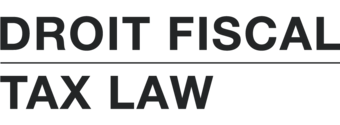Two taxpayers were reassessed, a corporation and its sole shareholder. The shareholder sold financial products and life insurance policies through his corporation although, for some provinces, he had to conduct business as a sole proprietor due to provincial regulations.
Swap Transactions and TFSAs
The taxpayer was a sophisticated investor. In 2009, when the Tax-Free Savings Account (“TFSA”) rules were introduced, she saw a tax planning opportunity. At that time, she had a self-directed RRSP and a direct trading account. Knowing that gains made inside TFSAs are not taxable, she swapped stocks in and out of her RRSP, trading account and newly opened TFSA to take advantage of that.
Transfert de la maison familiale, le divorce n’a pas sauvé madame du fisc
Généralement, lorsqu’un contribuable doit de l’argent à Revenu Québec et qu’il transfert un bien à une autre personne avec qui il a un lien de dépendance, la personne qui reçoit le bien sera tenue solidairement responsable avec le contribuable de la dette de celui-ci.
Les administrateurs d’une société doivent payer la TPS et la TVQ si celle-ci omet de le faire
Le restaurant qui appartenait au fils de Monsieur Gaétan Gagné était aux prises avec des difficultés financières. Afin de l’aider, Monsieur Gagné lui a prêté de l’argent, en échange de quoi son fils lui a émis des actions de la société 9129-7903 Québec Inc. (la « Société »). La Société a omis de verser la taxe nette qu’elle devait à Revenu Québec.
Relying on What Others Do Can Be Very Costly
The taxpayer was a corporation carrying on the business of selling and distributing dental products to dentists in Canada, including local anesthetic solutions. 95% of those solutions contained “epinephrine”. Prior to May 2005, the taxpayer sold the anesthetic solutions as “taxable supplies”, meaning that it charged GST. Effective May 1, 2005, it decided to treat the solutions as “zero-rated supplies” and therefore stopped charging GST.
